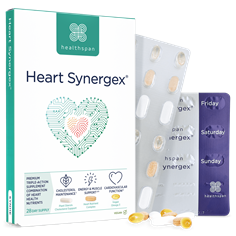Plant Sterols For Cholesterol
Plant Sterols For Cholesterol
Support your heart health naturally with plant sterols. Backed by decades of research, plant sterols help lower LDL (bad) cholesterol, a key risk factor for heart disease. Plant sterols reduce cholesterol absorption in the gut, making them ideal for those looking to manage their cholesterol as part of a healthy lifestyle.
What are plant sterols and what do they do?
Plant sterols and stanols, also known as phytosterols, are naturally occurring compounds found in plants. Structurally similar to cholesterol, they compete with it for absorption in the digestive system, helping to reduce levels of “bad” cholesterol (non-HDL cholesterol) in the blood.
How do plant sterols help lower cholesterol?
Plant sterols work by blocking the absorption of cholesterol in the gut. Because they mimic cholesterol, they take its place in the digestive process, allowing more dietary and blood cholesterol to be excreted. This natural mechanism helps lower total cholesterol and non-HDL (bad) cholesterol levels.
Can plant sterols help with heart health?
Plant sterols can support heart health by reducing LDL (bad) cholesterol, a major risk factor for heart disease. Including phytosterol-enriched foods or supplements in your daily routine can be a helpful part of a heart-friendly lifestyle. However, they work best alongside a balanced diet and regular exercise.
Are plant sterols better than statins?
Plant sterols and statins both help reduce LDL cholesterol, but they work in different ways. Statins are prescribed medicines that reduce how much cholesterol your liver produces, while plant sterols help block cholesterol absorption in the gut. While sterols are a natural and effective option for managing cholesterol, they’re not a replacement for statins if your doctor has recommended them.
Where can you get plant sterols naturally?
Plant sterols are naturally found in small amounts in plant-based foods like vegetable oils, nuts, seeds, wholegrains, legumes, fruits and vegetables. They’re also added to some fortified products, such as spreads, yoghurts and milk drinks. These fortified foods typically provide 750–2000 mg per serving, helping you reach the daily intake needed to support cholesterol reduction.
How many plant sterol supplements should you take?
To help reduce cholesterol, adults are generally advised to consume between 1500 mg and 3000 mg of plant sterols per day. This can be achieved through a combination of fortified foods and supplements. Taking more than 3000 mg daily offers no extra benefit, so always follow the guidance on the product label or speak to your healthcare professional if you’re unsure.
Do plant sterols have side effects?
Plant sterols and stanols are considered safe for most people when taken at recommended levels. Some individuals may experience mild digestive symptoms such as loose stools or increased fat in the stool. If side effects persist, it’s worth speaking with your GP or pharmacist.
Who should avoid taking plant sterol supplements?
While safe for most adults with high cholesterol, plant sterols aren't suitable for everyone. Children under five, pregnant or breastfeeding women, and those with a rare genetic condition called sitosterolemia should avoid them. People with short bowel syndrome should use sterols cautiously, and there’s no proven benefit for individuals with normal cholesterol levels.












%20Sep24-v2.png)
